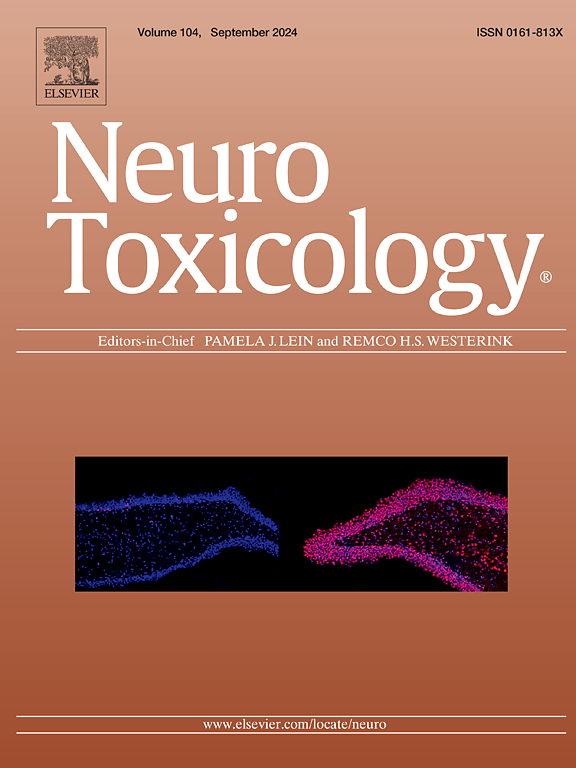The impact of insufficient sleep on subjective cognitive dysfunction: Exploring the moderating role of environmental factors at the census tract level
IF 3.9
3区 医学
Q2 NEUROSCIENCES
引用次数: 0
Abstract
Subjective cognitive decline (SCD) affects approximately 50 % of adults in the United States. Insufficient sleep (< 7 h per night) and environmental hazards (e.g., exposure to traffic, hazardous chemicals, and air pollution) have each been identified as independent risk factors for cognitive dysfunction. Furthermore, sleep duration and environmental hazards may interact to exacerbate cognitive dysfunction. However, this has yet to be tested empirically using nationally representative data. Using the CDC PLACES and EPA EJScreen datasets, we examined the associations between insufficient sleep, environmental hazards (particulate matter < 2.5 micrometers [PM2.5], Superfund site proximity, traffic volume/proximity), and cognitive dysfunction across 58,014 U.S. Census tracts. Multiple regression analyses revealed that insufficient sleep and more environmental hazard exposure (i.e., higher levels of PM2.5, and higher volume/closer proximity to traffic) were each significantly associated with an increased prevalence of cognitive dysfunction. Significant interactions also were observed between insufficient sleep and environmental hazards: In Census tracts with higher exposure to PM2.5, closer proximity/higher volume of traffic, and farther proximity from a Superfund site there was a stronger association between insufficient sleep and cognitive dysfunction. These findings underscore the importance of addressing multiple environmental and behavioral risk factors in efforts to mitigate cognitive dysfunction. The synergistic effects observed highlight the need for integrated interventions that target both sleep health and environmental exposures to improve cognitive health outcomes and promote health equity, especially in underserved populations.
睡眠不足对主观认知功能障碍的影响:环境因素在人口普查区水平的调节作用。
主观认知能力下降(SCD)影响了大约50%的美国成年人。睡眠不足(每晚< 7小时)和环境危害(如暴露于交通、危险化学品和空气污染)均被确定为认知功能障碍的独立危险因素。此外,睡眠时间和环境危害可能相互作用,加剧认知功能障碍。然而,这还需要使用具有全国代表性的数据进行实证检验。利用CDC PLACES和EPA EJScreen数据集,我们研究了58,014个美国人口普查区睡眠不足、环境危害(颗粒物< 2.5微米[PM2.5]、超级基金站点邻近性、交通量/邻近性)和认知功能障碍之间的关系。多元回归分析显示,睡眠不足和更多的环境危害暴露(即更高水平的PM2.5和更大的音量/更接近交通)都与认知功能障碍的患病率增加显著相关。睡眠不足与环境危害之间也存在显著的相互作用:在PM2.5暴露量较高、交通流量较近、距离超级基金站点较近的人口普查区,睡眠不足与认知功能障碍之间的关联更强。这些发现强调了解决多种环境和行为风险因素在减轻认知功能障碍方面的重要性。观察到的协同效应强调需要针对睡眠健康和环境暴露进行综合干预,以改善认知健康结果并促进健康公平,特别是在服务不足的人群中。
本文章由计算机程序翻译,如有差异,请以英文原文为准。
求助全文
约1分钟内获得全文
求助全文
来源期刊

Neurotoxicology
医学-毒理学
CiteScore
6.80
自引率
5.90%
发文量
161
审稿时长
70 days
期刊介绍:
NeuroToxicology specializes in publishing the best peer-reviewed original research papers dealing with the effects of toxic substances on the nervous system of humans and experimental animals of all ages. The Journal emphasizes papers dealing with the neurotoxic effects of environmentally significant chemical hazards, manufactured drugs and naturally occurring compounds.
 求助内容:
求助内容: 应助结果提醒方式:
应助结果提醒方式:


